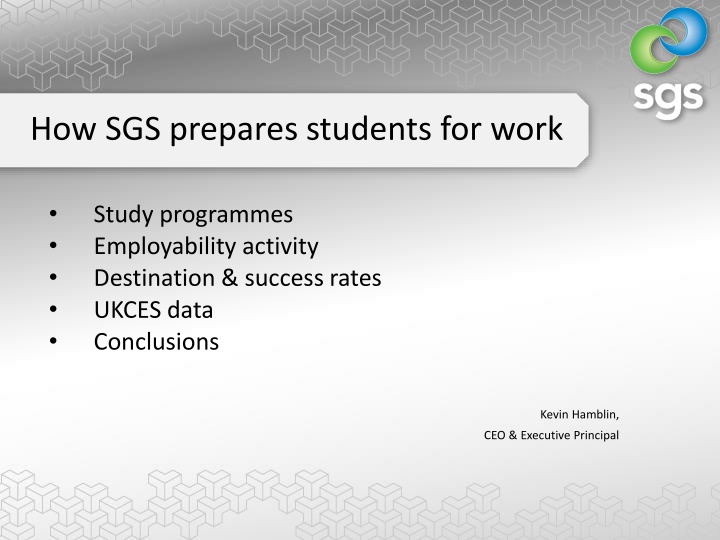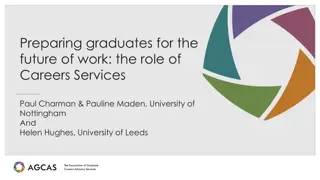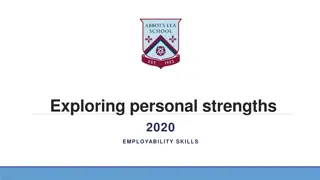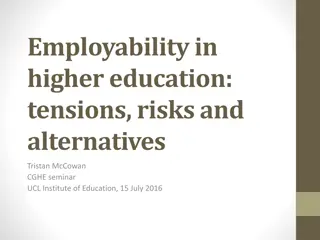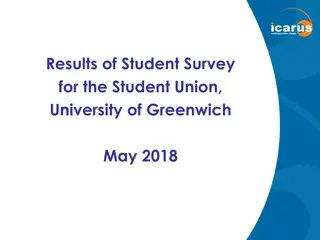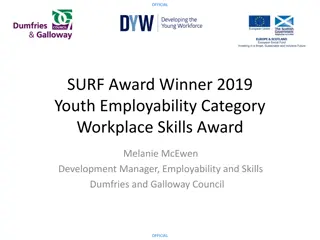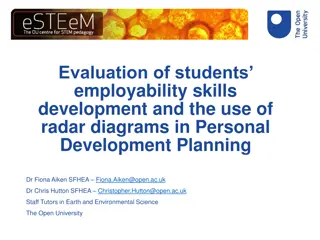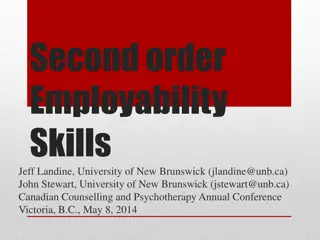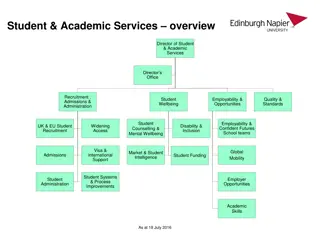Enhancing Student Employability at SGS: A Comprehensive Approach
SGS focuses on preparing students for work and study programs through various activities like job clubs, job coaching, and traineeships. Their collaboration with over 900 employers has resulted in high satisfaction rates and successful destinations for students. The UKCES data reflects positive outcomes, emphasizing SGS's commitment to student success.
Download Presentation

Please find below an Image/Link to download the presentation.
The content on the website is provided AS IS for your information and personal use only. It may not be sold, licensed, or shared on other websites without obtaining consent from the author.If you encounter any issues during the download, it is possible that the publisher has removed the file from their server.
You are allowed to download the files provided on this website for personal or commercial use, subject to the condition that they are used lawfully. All files are the property of their respective owners.
The content on the website is provided AS IS for your information and personal use only. It may not be sold, licensed, or shared on other websites without obtaining consent from the author.
E N D
Presentation Transcript
How SGS prepares students for work Study programmes Employability activity Destination & success rates UKCES data Conclusions Kevin Hamblin, CEO & Executive Principal
Employability activity Job clubs - incl CV workshops, interview techniques and online applications Jobshop - job vacancy website Sector-based work academies - partnered with employers and DWP Suited, Booted, Recruited and progression courses including; back to work basics, sector specific, hired and inspired Rolling traineeships - also a route for pre-apprenticeships BBC traineeships Computer confidence - Supports learners with the new JCP digital approach Bristol Helping Young People into Employment (HYPE) project Job coaching Refresh to impress - support for the mature learner
Working with employers 4500 16-18 s & 240 HE students Working with 900+ employers 88% of our employers would recommend us to other employers 86% of employers are happy or very happy with our provision 6% above national average. 1400+ apprentices 500+ different professional, technical or academic qualifications delivered 15000 public examinations, 12000 on-line tests, 1643 GCSE m & E resits! 76% of student progress onto FE or HE courses
Destination & Success Destination of 3990 student in 13/14 63% (2520) stayed in further education 13% (520) went into HE 9% (360) became employed (not apprenticeship based) 10% (390) became an apprentice 5% (200) unknown, gap year, NEET 92% of all our students achieved their core qualification 95% of all Level 3 students achieved their qualification We educate 600+ pupil premium students Success rates are equivalent to top decile nationally
Learner satisfaction Learners satisfied with the quality of teaching and learning 97% Learners satisfied with the learning support they receive Learner satisfaction with SGS 98% 98%
UKCES Employer Survey 90,000 employers one of the largest surveys in the world In the WoE, more employers recruit from FE than the national average (14% v 12%) In 2013, WoE showed 4.1% vacancies v 2.5% nationally 1.4% Hard to fill v 0.75% nationally 1.25% skills shortage vacancies v 0.5% nationally
UKCES Employer Survey The preparedness (very well prepared and well prepared) for work of 17-18 year olds leaving a Further Education Institution in WoE is 81%, compared to 74% nationally. A lack of numeracy and a poor education were not seen as an issue in the WoE (1% and less than 1% against a UK average of 2% and 1%) The Hard to Fill and Skills Shortage Vacancies are greater than national average. There is less problem in filling vacancies which do not require specific skills.
Preparedness for work v Well and Well Prepared from FEI 100% 90% 80% 70% 60% 50% 40% 30% 20% 10% 0%
Conclusions Lack of understanding regarding the role of FE WoE FE provision is preparing young people for work better than most LEP areas. High level skills and experience are required. We need to invest in our young people and support their college career Hard to fill vacancies and skills shortages are as much a result of under- investment in traineeships and apprenticeships years ago Unless more college leavers are employed within specific sectors, these skills and experience will not be gained for the medium term Colleges are integral to the success of the economy and the route to employment the solution rather than the problem
